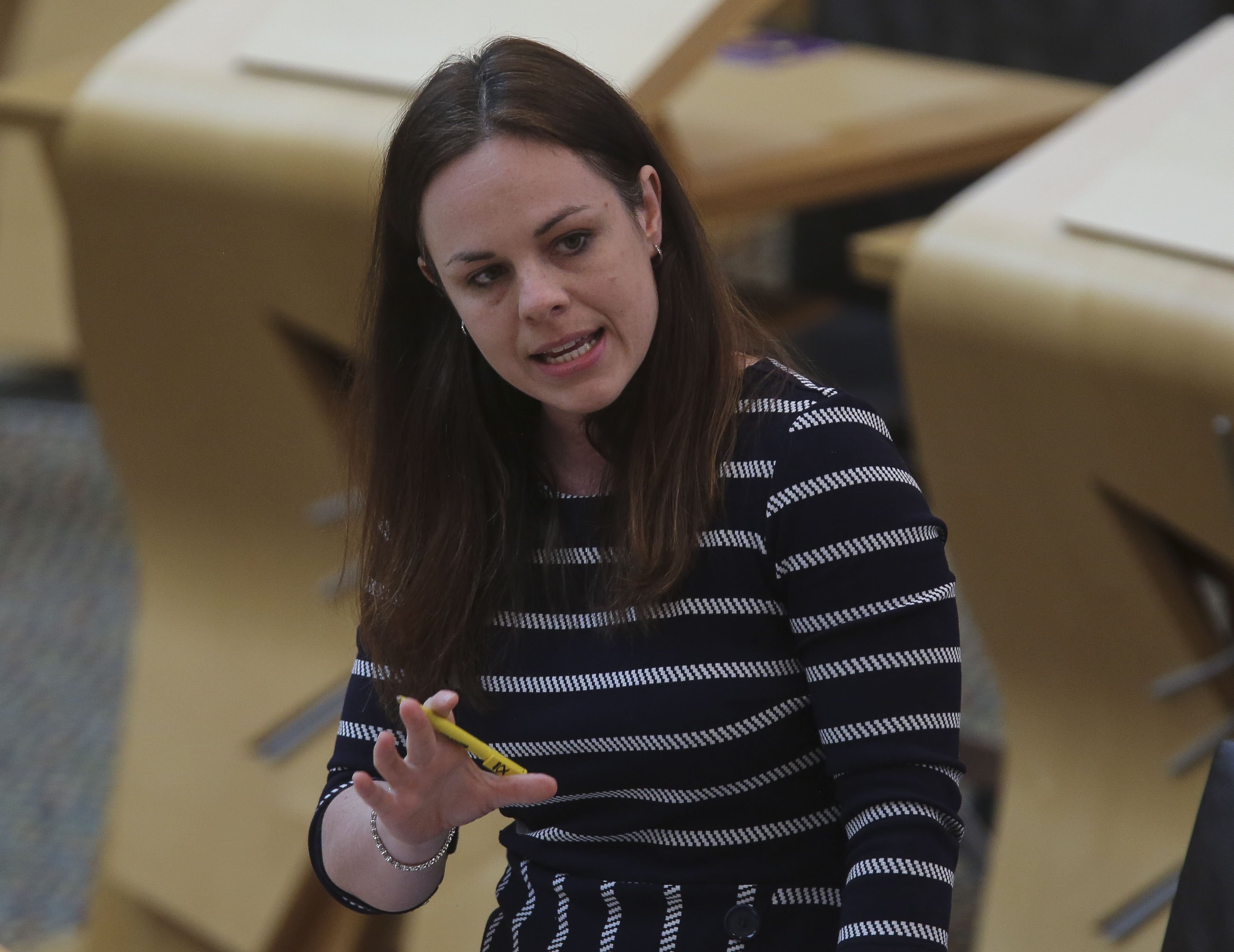£150 council tax rebates confirmed for most Scots households
Finance Secretary Kate Forbes announced three sets of measures to support people with the cost of living crisis.

Scottish Finance Secretary Kate Forbes has confirmed a £290 million package of support for people affected by the soaring cost of living, including £150 council tax rebates for eligible households.
All households in bands A to D will receive a £150 payment or discount from their council tax bill, as will those in other bands who already qualify for reduced rates.
Ms Forbes said it means 73% of Scottish households – about 1.85 million people – would receive the money.
But she admitted it is an “imperfect scheme” and does not go far enough to support Scots hit by rising energy bills.
“In terms of the challenges that we face right now, I think the measures that we have outlined will only go so far,” she said.
Opening the stage three debate of the Scottish Budget, Ms Forbes estimated that the energy price cap rise of almost £700 “could move a further 211,000 households into fuel poverty, and around 235,000 households who were already fuel poor into extreme fuel poverty”.
Announcing the financial support measures, she said: “Firstly, we will provide £150 to every household in receipt of council tax reduction in all council tax bands.
“The council tax reduction scheme already identifies households in greatest need and will allow us to target this intervention.
“Secondly, I will provide local authorities with funding to pass on £150 to other occupied households in bands A to D in Scotland.”
The money will either be given as a direct payment by local authorities or used as credit towards council tax bills, Ms Forbes said.
The Finance Secretary also announced an additional £10 million for the Fuel Insecurity Fund “to help households at risk of self-disconnection, or self-rationing their energy use, due to unaffordable fuel costs”.
Explaining her decision, Ms Forbes said: “This is clearly an imperfect scheme.
“It will reach some households who may not need this, but it is the only route we have to make sure we reach those for whom it will make a difference, quickly and simply.
“I know that the cost of living crisis is affecting households who are not in receipt of benefits, who are not claiming a council tax reduction. And they are facing hardship too.
“We must seek to do what we can to prevent those households and families on the edge of the poverty line from falling over it.”
Councils will be allowed to carry forward any underspends in the Discretionary Housing Payment and the Scottish Welfare Fund into the next financial year, Ms Forbes said.
For businesses, Ms Forbes said there will be an additional £16 million for cultural events that have faced cancellations, £7.5 million for Scottish tour operators, £3.5 million for outbound travel agents, and £3 million towards city centre recovery to improve footfall.
One-off grants worth a total of £6.5 million will be made available for the childcare sector, including childminders.
She said: “A fully functioning childcare sector is a pivotal part of our national economic infrastructure.”
But Ms Forbes said, with just six weeks until the end of the financial year, that the final financial position for funding to be spent in Scotland “is yet to be formally and finally confirmed”.
The changes to date, in a very short space of time, are significant. They will impact our assumptions on the 2022-23 Scottish Budget and I will update Parliament once we receive the final position
The Finance Secretary said the position shifted last week, following the announcement of a £2 billion relief package by the Chancellor “not by increasing the expected consequentials but by decreasing the funding”.
“The changes to date, in a very short space of time, are significant. They will impact our assumptions on the 2022-23 Scottish Budget and I will update Parliament once we receive the final position, at the UK Supplementary Estimate outcome later this month,” she said.
Scottish Tory finance spokeswoman Liz Smith said that given the powersharing between the Scottish Greens and the Scottish Government, the passage of the Budget was a foregone conclusion.
“Because of the arithmetic of this Parliament and the unholy alliance between the SNP and the Greens, this Budget has been a fait accompli from day one, with very little engagement from the other political parties,” she said.
“It’s a Budget that has failed to put economic recovery first and it’s failed to put forward the delivery of local services.
“The SNP, in my opinion, has failed to listen to business, it’s failed to listen to local government and it’s failed to understand where the public priorities lie.
“As such, we cannot support it.”
As a Budget we think it's timid, regressive, unambitious and doesn't do nearly enough to alleviate the cost-of-living crisis
Labour MSP Paul Sweeney also said his party would not vote for the Budget.
He said: “As a Budget we think it’s timid, regressive, unambitious and doesn’t do nearly enough to alleviate the cost-of-living crisis, which is no longer looming in the distance but – as the Cabinet Secretary herself said – is staring us directly in the face.”
Scottish Liberal Democrat leader Alex Cole-Hamilton said: “The Finance Secretary has set the same elephant trap as her predecessors year after year.
“The SNP lay down punishing cuts to councils only at the last hour to offer a little extra cash.”
Bookmark popover
Removed from bookmarks